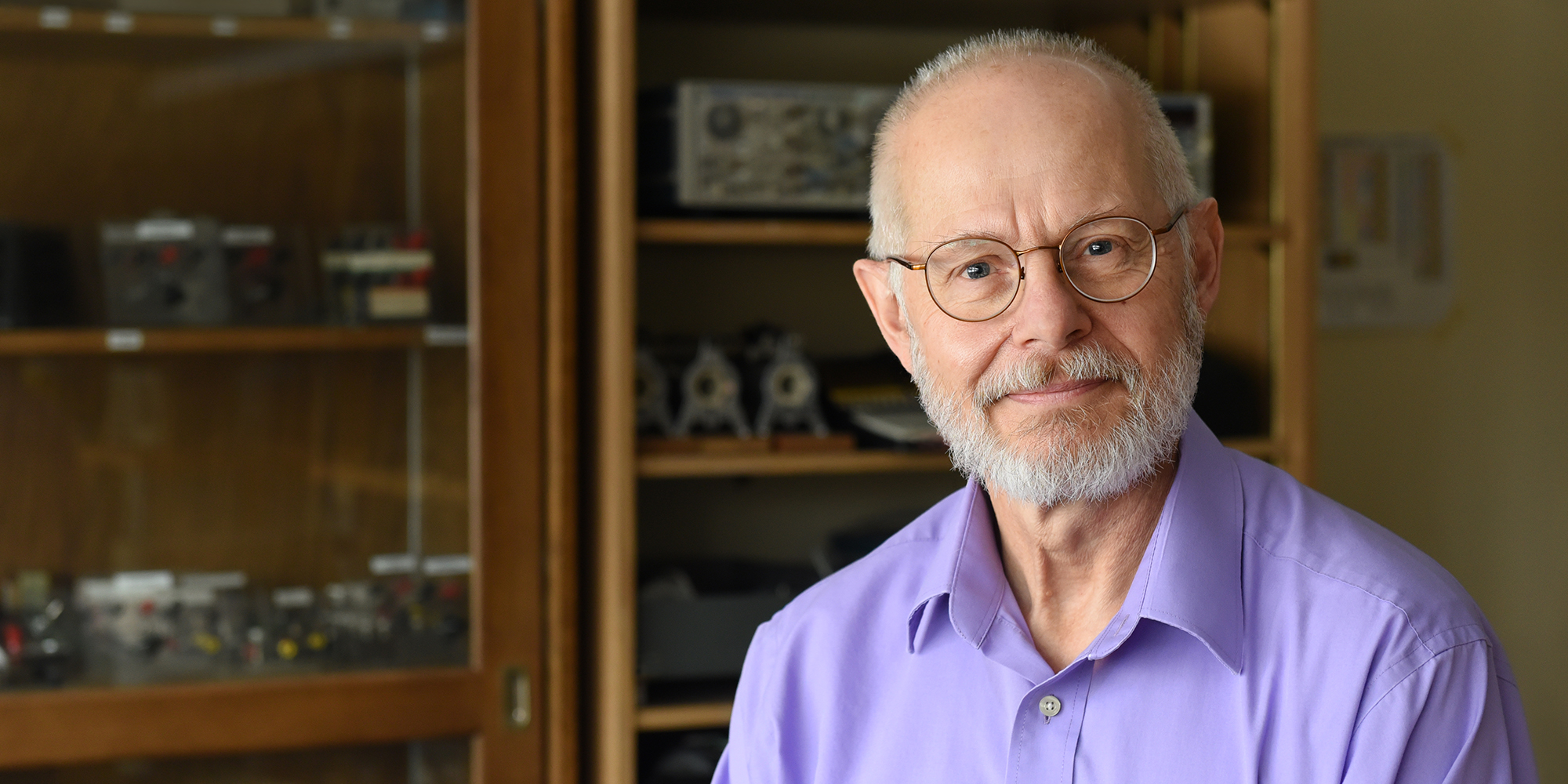In the sky, on the ground, and in the classroom, Dr. Timothy Busch has been putting the ideas of systems engineering to work and to the test most of his adult life.
It was his interest in technology, particularly electronics, that led him to enlist in the United States Air Force as an aircraft electronics (Avionics) technician.
“I was curious about the design decisions that led to the systems I maintained which pushed me toward engineering. When I left active duty, I enrolled at the University of Buffalo to study electrical engineering.”
As an undergraduate student, he attended school part time while also working to support his family – not an easy task for anyone.
“The demands on my time were tremendous. I did my Master’s degree at Syracuse University while working full time for the Air Force. I traveled a lot and remember mailing in (snail mail) my homework. The Air Force sent me to Binghamton University for long-term full study and for the first time I was a full-time student without having to work at a full-time job. It was wonderful.”
A system is a collection of different elements that work together to produce a result that can’t be obtained by the elements alone, and with his expertise in systems and control, he’s been enlightening and guiding scores of engineers at SUNY Poly for more than 15 years.
“Systems engineering is an interdisciplinary process that takes a customer’s requirements and designs, builds, tests, and implements a solution that meets the customer’s needs. The control aspect addresses the design and implementation of automatic decision making within the system.”
Some of those systems we interact with on a daily basis, even if we don’t realize it.
“Some that we might be familiar with include the health care system, transportation system, electric power grid, logistics distribution such as Amazon or Walmart. Familiar, but less understood systems might include your smartphone, PS4 or car.”
Those many uses of systems get explored more than ever before now that the New York State Education Department and State University of New York has approved SUNY Poly’s new Master of Science degree in Systems Engineering. The 30 credit degree program will provide students with enhanced theoretical and application-oriented skills and is designed for graduates with already existing technical capabilities and an appreciation of engineering across multiple disciplines.
It was in 2003 that Dr. Busch first came to SUNY Polytechnic Institute (back when it was known as SUNY Institute of Technology), and though the name, the faces, even the technology itself may have changed in more than a dozen years, one thing that has stayed consistent is Dr. Busch’s love of sharing his passion for electronics and turning out new generations of skilled and innovative engineers.
“There’s a joy that comes when you recognize that a student understands a concept, principle or theory. You’ve provided someone with something they never had before – a new tool! I love being a part of that.”
